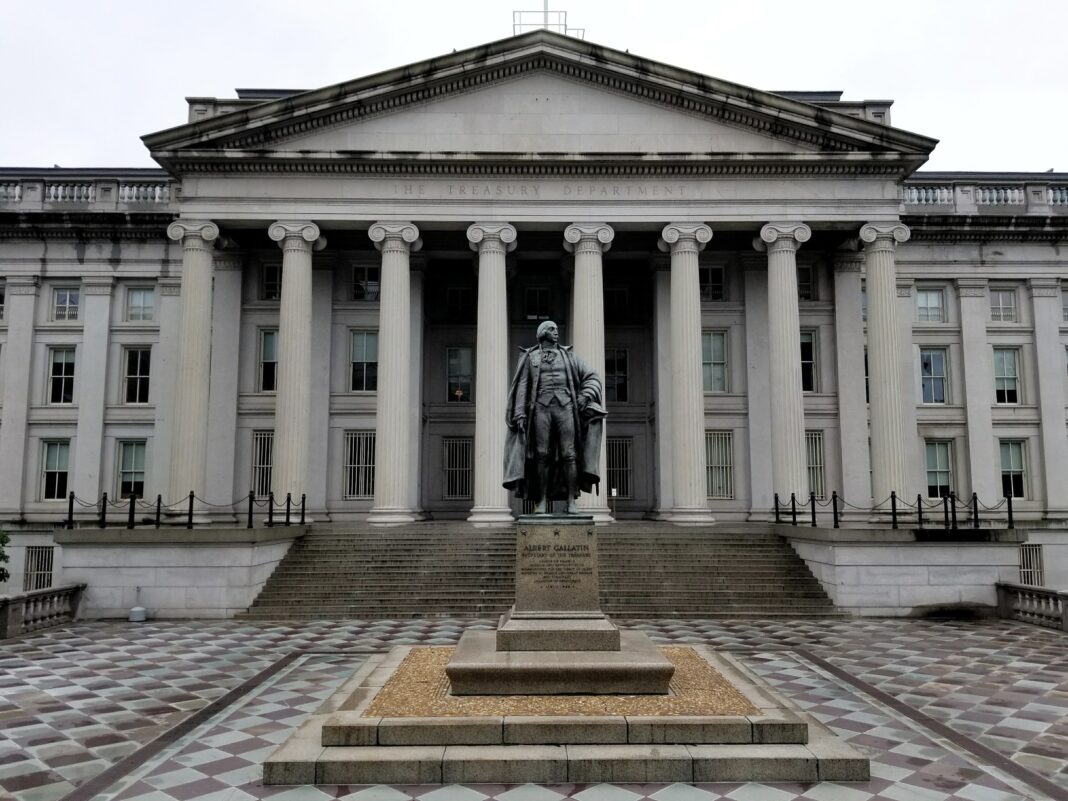- The U.S. Treasury sanctioned five entities and one individual from Iran, China, Taiwan, and Hong Kong on July 31, 2025.
- Those sanctioned supported Iran’s military UAV production via technology procurement and exports.
- The action targets Control Afzar and its CEO Javad Alizadeh Hoshyar, as well as associated firms in Asia.
- These sanctions aim to disrupt Iran’s asymmetric weapons capabilities and supply chain.
- Entities linked to these actors are now blocked from accessing U.S. financial systems.
The Big Picture
On Thursday, the U.S. Department of the Treasury announced sanctions against a global procurement network aiding Iran’s military unmanned aerial vehicle (UAV) program. The action, taken under Executive Order 13382, targets five firms and one executive connected to operations spanning Iran, China, Taiwan, and Hong Kong.
Sanctioned for Supporting HESA
The U.S. Treasury’s Office of Foreign Assets Control (OFAC) designated these parties for assisting the Iran Aircraft Manufacturing Industrial Company (HESA), a state-run enterprise under Iran’s Ministry of Defense and Armed Forces Logistics (MODAFL). HESA is known for manufacturing Ababil-series drones used by the Islamic Revolutionary Guard Corps (IRGC).
Entities and Individuals Named
According to OFAC, Iran-based Control Afzar Tabriz Co Ltd and its CEO Javad Alizadeh Hoshyar led the technology procurement effort, acquiring advanced computer numerical control (CNC) machines vital for aerospace component manufacturing. These machines were allegedly redirected to HESA through intermediaries.
Control Afzar reportedly used Hong Kong-based Clifton Trading Limited to mask its transactions and partnered with Taiwan-based Mecatron Machinery Co Ltd and Joemars Machinery and Electric Industrial Co Ltd to circumvent sanctions. Joemars also created a subsidiary in China named Changzhou Joemars Industrial Automation Co Ltd.
Legal Authority and Previous Designations
These new designations expand upon earlier actions taken under E.O. 13382, which is aimed at curbing proliferation of weapons of mass destruction. Treasury first sanctioned HESA in 2008 and MODAFL and the IRGC in 2007. Thursday’s move continues enforcement under National Security Presidential Memorandum 2, which prioritizes disruption of Iran’s military expansion and proxy networks.
Implications of the Sanctions
All property and interests in property of the designated entities and persons within U.S. jurisdiction are now blocked. U.S. individuals and businesses are prohibited from engaging with them without OFAC authorization. Any related entities with over 50% ownership by blocked persons are also subject to restrictions.
Engaging in transactions with the designated network could also trigger secondary sanctions against foreign financial institutions. OFAC emphasized that violators may face civil or criminal penalties—even on a strict liability basis—under existing economic sanctions enforcement guidelines.
The Bottom Line
The U.S. government is intensifying efforts to dismantle Iran’s military supply chain by targeting foreign procurement networks. The latest sanctions signal a broader strategy to disrupt asymmetric warfare tools like drones, as geopolitical tensions persist in the Middle East and beyond.
Trump Deploys Nuclear Submarines After Medvedev’s War Warning
Follow Virginia Times for regular news updates. Stay informed with the latest headlines, breaking stories, and in-depth reporting from around the world.
A global media for the latest news, entertainment, music fashion, and more.














